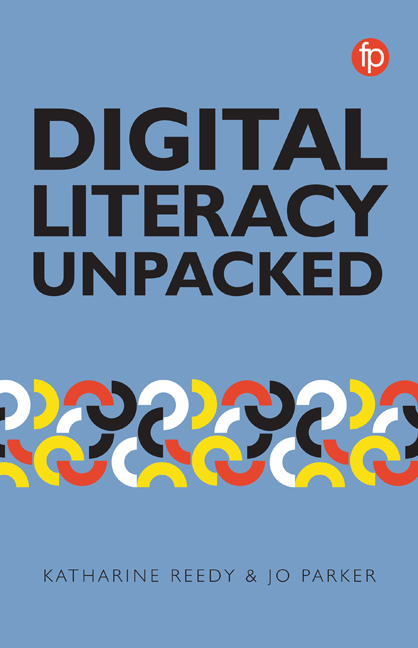Book contents
- Frontmatter
- Contents
- List of figures and case studies
- Foreword
- Notes on Contributors
- Introduction
- Part I Approaching Digital Literacy
- Part II Learning in a Digital World
- 4 Digital Literacy in UK and European Schools: Enhancing School Children's Motivation to Read for Pleasure
- 5 Digital Games: Providing Unique Digital Literacy Challenges in Childhood
- 6 Students in the SADL: Lessons From LSE's Digital Literacy Programme
- 7 Copyright and Digital Literacy: Rules, Risk and Creativity
- Part III Developing Staff Digital Literacies
- Part IV Digital Citizens and Workers
- Conclusion
- Index
7 - Copyright and Digital Literacy: Rules, Risk and Creativity
from Part II - Learning in a Digital World
Published online by Cambridge University Press: 24 September 2019
- Frontmatter
- Contents
- List of figures and case studies
- Foreword
- Notes on Contributors
- Introduction
- Part I Approaching Digital Literacy
- Part II Learning in a Digital World
- 4 Digital Literacy in UK and European Schools: Enhancing School Children's Motivation to Read for Pleasure
- 5 Digital Games: Providing Unique Digital Literacy Challenges in Childhood
- 6 Students in the SADL: Lessons From LSE's Digital Literacy Programme
- 7 Copyright and Digital Literacy: Rules, Risk and Creativity
- Part III Developing Staff Digital Literacies
- Part IV Digital Citizens and Workers
- Conclusion
- Index
Summary
Introduction and definitions
Copyright is now an inescapable aspect of learning and research when using digital technologies, and therefore awareness of it is a fundamental part of digital literacy. Rather than being a separate concept that can be considered in isolation, copyright implications arise whenever anyone creates, interacts with or shares content with others. It is therefore woven through all the key aspects of digital literacies and capabilities, with particular relevance for the ethics of sharing.
Copyright has traditionally been seen primarily as a compliance issue for educational and cultural institutions such as libraries, universities, colleges and museums – protecting an institution from claims of infringement by ‘locking down’ processes and procedures. Copyright literacy however seeks to situate the subject in a critical and empowering context. It draws on developments in the field of information literacy, which have been shaped in recent years by theories of critical pedagogy (see for example Elmbourg, 2006; McNichol, 2016; Smith, 2013; see also chapter 1 in this volume). Jane Secker and I recently defined copyright literacy as: ‘Acquiring and demonstrating the appropriate knowledge, skills and behaviours to enable the ethical creation and use of copyright material’ (Secker and Morrison, 2016, 121).
The term was first used in Bulgaria 2012 by Tania Todorova who carried out a survey of librarians’ levels of knowledge and understanding of copyright, calling this ‘copyright literacy’ (Todorova, 2014). The survey was subsequently carried out in 14 countries (Todorova, 2017), high - lighting a need for greater awareness of copyright issues among the library profession. Following the multinational survey, copyright literacy has been recognised as an important area for library and information science education and continuing professional development, though an awareness of and an ability to discuss and communicate copyright issues within educational and cultural institutions extends beyond the library profession. We are all now creators and consumers of artistic, scientific and cultural expression, so copyright and licensing affect the daily lives of everyone in education and research. It governs how we can access and use content in all forms, and it is important for it to be part of the professional skillsets of other learning support staff as well as teachers and indeed students.
- Type
- Chapter
- Information
- Digital Literacy Unpacked , pp. 97 - 108Publisher: FacetPrint publication year: 2018



